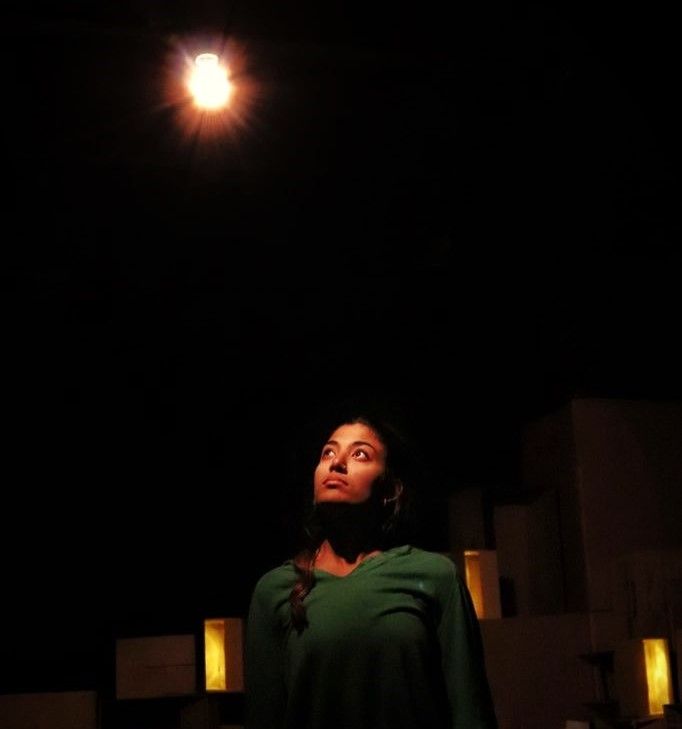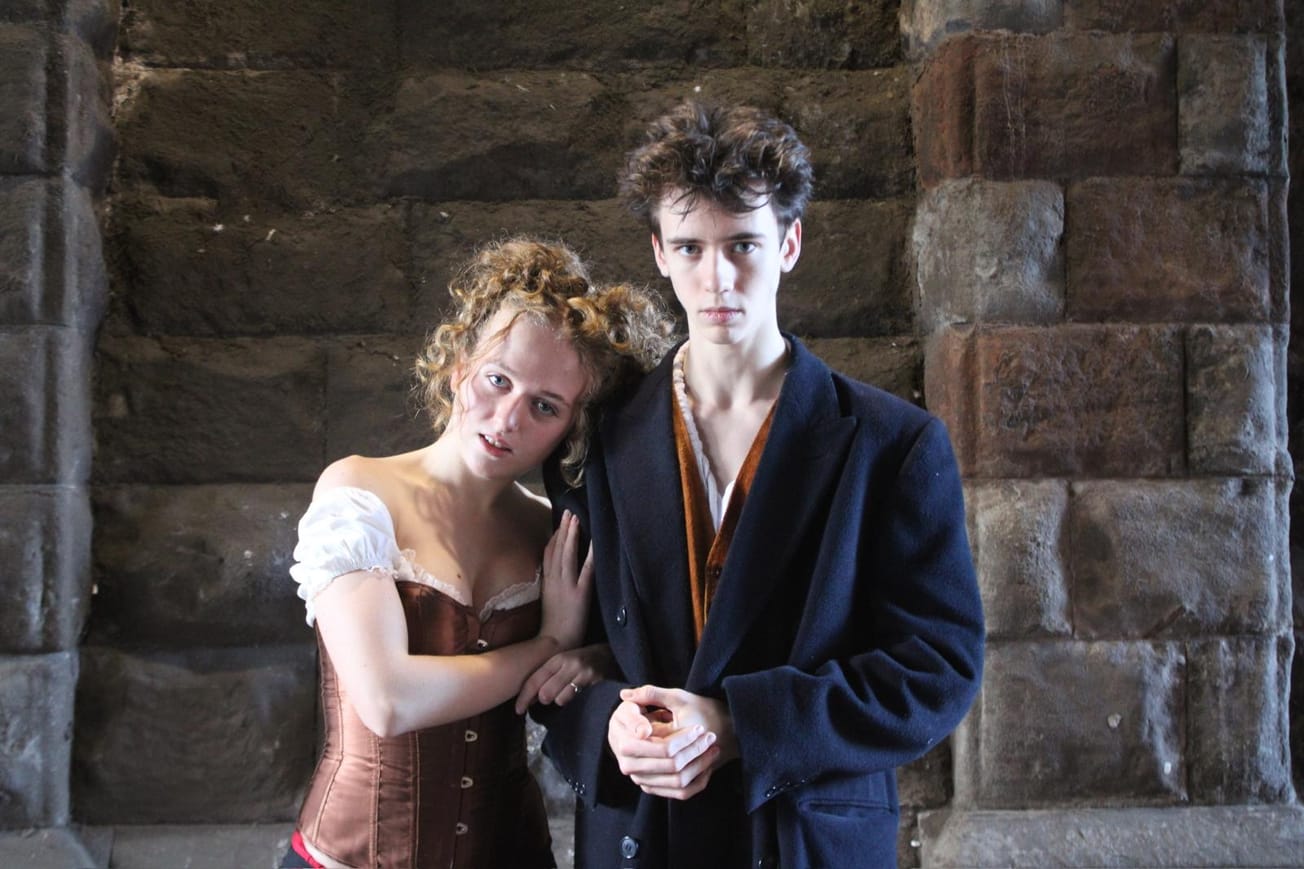By Milan Perera, Arts Critic Columnist
They are the proverbial “New Kid on the Block”, but there was no shortage of boldness and genre-busting writing from the all-female led student theatre collective who made their entry into the world of theatre in the most emphatic fashion.
Their debut production The Flower Shop tackles societal pressures faced by women and takes the audience on a less travelled path which has a unique gynocentric perspective on the existential matters of love, sex, family and the ever-encroaching middle-age.
The story is set around a flower shop in East London run by Julie, a woman in her mid forties. Julie is a successful and industrious businesswoman whose fine financial judgement brings trade which prompts her to open another outlet. Julie’s husband Jim, also in mid forties, helps out the shop in his inimitable way which at times lacks thoroughness and discretion.

Jim’s handsome young nephew Miles visits Julie and Jim frequently. The romantic ardour of Jim and Julie’s marriage is well and truly dried out and being replaced with a respectful tolerance. Jim tries to find solace in gambling, drinking and weekly dose of football on television. Gambling takes a turn for the worst and Jim desperately needs more money feed the habit, leading to him stealing from the shop as his debts grow exponentially; Julie’s dream of opening another branch hit a rock. What follows is a cataclysmic chain of events that moves at a rapid pace.
The multi-layered, multi-textured and remarkably intertextual writing of Peggy Pollard condensed the action to tight 75 minutes which kept the audience engaged throughout.
The protagonist of the play, Julie, is a delightful juxtaposition of numerous tragic heroines. Like Flaubert’s Emma Bovary she is gripped with a sense of desperation at the face of the unexpected turn of events. Like Catherine Cookson’s Northern heroines she is industrious and formidable. Like Sophocles’ Antigone she is strong, passionate and full of devotion but has the misfortune of paying for the “sins” of others.
Miles is supremely confident in his charm offence around the ladies, who consider him to be suave and sophisticated with money to throw away to impress. Amman Patel responded to the challenge with composure by portraying Miles with the naivety and vanity that come with the character. His Adonis-like looks coupled with the flawless delivery and dry wit were a testament to his craft as a rising star of the youth theatre.

Rory Stroud as Jim had the unenviable assignment of portraying a man in his mid forties with a concoction of complex personality traits from tenderness and devotion to deception and betrayal. Stroud’s rendition of Jim as a man going through a midlife crisis was undoubtedly a soaring triumph.
But what an engrossing performance by Sreya Chenilath in the title character as Julie, where she managed to combine unmistakable stage presence with carefully calibrated emotions. The control of delivery with reference to contrasting scenarios and emotions was a majestic sight to behold.
Anna Atwell plays the barmaid role with disarming ease as she perfectly executes the ambivalent sentiments for being the foil of Miles’ grand-show of generosity and sophistication.
The writing of Peggy Pollard explores the existential challenges faced by married couples who seem top drift apart gradually after years of routine and monotony. The sexual dynamics of such relationships are carefully unveiled as when Julie felt flattered by the attention of Miles, who further sublimate it with buying her flowers. Jim’s jealousy and helplessness are also highlighted as his once attractive physiognomy has given away to a 15 stone couch-potato.
The key feature of Pollard’s writing is her reluctance to dictate terms on what to make of the interactions between the character but providing the audience the space to come to their own conclusions.

The change of sets was seamless and non-obtrusive while the accompanying music augmented the action unfolding on the stage without ever veering into the corny. The creative triad of the co-directors Peggy Pollard and Eliza Kilburn and the producer Izzy Wykes made their debut production a memorable one for the enthusiastic theatre goers present at the Alma Tavern Theatre who responded with a standing ovation.
Speaking exclusively to Epigram the writer and co-director Peggy Pollard and the producer Izzy Wykes expressed their keen vision, indomitable resolve and artistic conviction to explore further challenging and current topics without being unfettered.
In 2023 they are eager to build on the runaway success of their debut production which pulled out all the stops.
Featured Image: Courtesy of Working Mind Studios
What are your thoughts on The Flower Shop by Daily Bread Theatre?








